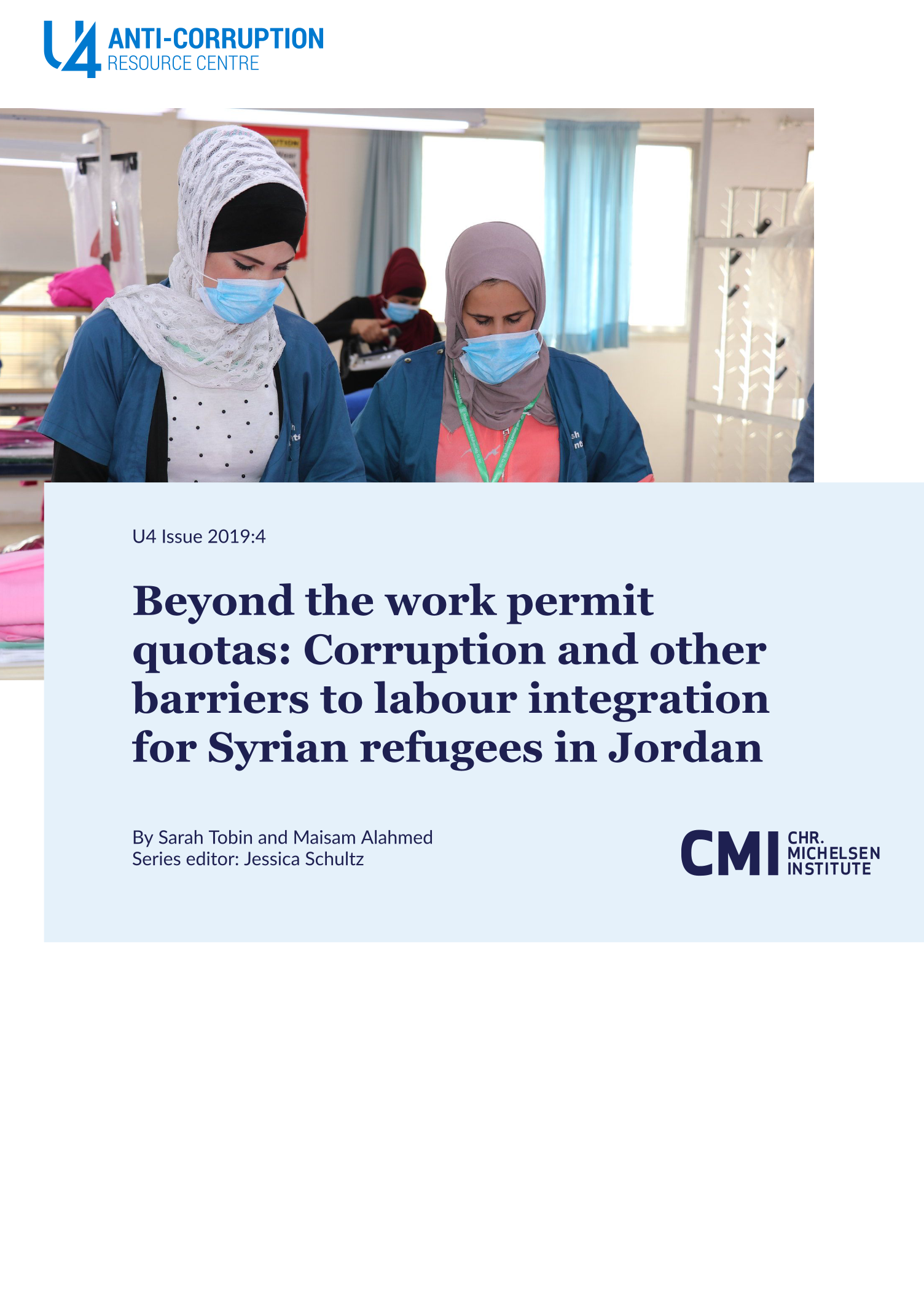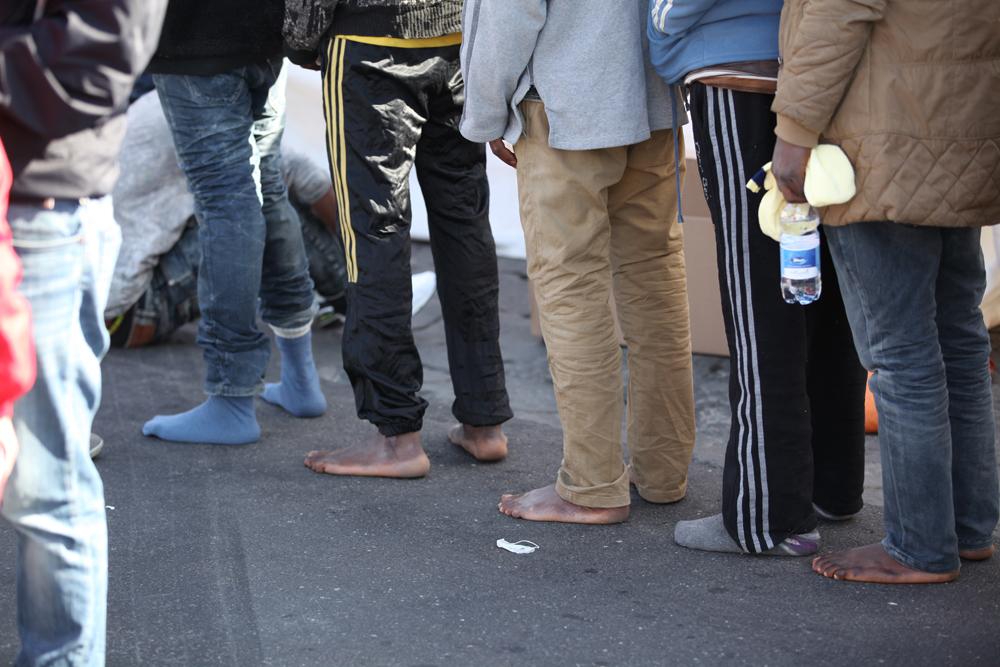Main points
- Over time, there have been a flurry of policy changes that have sought to regularise Syrian refugee workers in Jordan through the issuance of work permits. These changes have lowered the regulatory and bureaucratic obstacles to Syrians’ access to the Jordanian labour market.
- Nepotism plays a functional role for Syrian refugees and employers in Jordan. The need for efficiencies in various sectors and the pressures to meet global goals for permit issuance have created space for new forms of corrupt and perceived-to-be-corrupt practices in the IWPS.
- Obtaining a work permit does not guarantee employment, and it only gives the possibility of work in limited professional sectors that may be restricted through gender-based and nationality quotas.
- Syrians cite the exploitation of Syrian workers’ precarity as the most corrupt practice they regularly experience.
- The Jordanian government has both historically and within the IWPS proven itself adept at adjusting policies to regularise otherwise corrupt practices.
- The functions of current practices could be fulfilled through other, formalised means, such as an enhanced role for job-matching services and policy adjustments to limit the scope of control that can be exerted by current employers.

